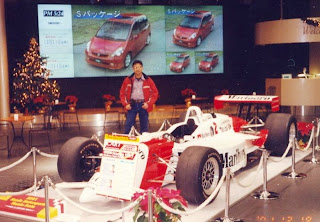Anybody who considers writing off Japanese management, however, should remember two things. First, that the country remains the world's leading center of manufacturing excellence. And, second, that Japanese businesses have a genius for turning adversity into advantage. Japan's lack of natural resources encouraged the Government to invest heavily in education. Two oil shocks and several steep rises in the yen have acted as powerful spurs to innovation. Several times before, Japanese car imports to the United States have dropped following steep rises in the yen; each time, Toyota City has found new ways to make lean production even leaner and come back to humble Detroit again.
Yet the process is different now because, for the first time in 30 years, the Japanese are trying not just to improve their own management models, but to merge them with Western ones.
One important thinker in this respect is Yotaro Kobayashi, the boss of Fuji Xerox, who is something of a hero to the younger generation of Japanese managers and who has spent much of the past decade insisting to his peers that his country's idea of consensual leadership needs to change. Mr. Kobayashi, a graduate of the Wharton School of the University of Pennsylvania, has spent years as the head of a joint venture with an American company.
He argues that Japanese bosses must learn how to make tough decisions and how to "market" them, both within their firms and in the world at large, so that employees and outsiders can see the logic of unpalatable choices. He also believes that Japanese managers need a dose of Western-style professionalism. Leaders should be carefully trained, not just allowed to emerge from the ranks. He encourages Fuji Xerox's rising middle managers to take responsibility for strategic decisions. He also likes to send a few to take American M.B.A. courses -- though he is careful not to give the impression that the firm is being turned into an American colony.
Mr. Kobayashi wants to introduce a streak of rebelliousness into the salaryman's soul: Japanese managers ought to challenge their business models rather than just endlessly improve them.
Mr. Kobayashi's own career was much influenced by a visit in the United States to the Aspen Institute, which puts on mind-broadening seminars for business leaders. He now has his own version in Japan where business people sit and listen to philosophers as well as people like Peter F. Drucker, and debate issues like the environment as well as questions about management.
Tuesday, May 27, 2008
East Meets West - The Remix < Part-5 / Japanese Management : Art and Practice > ...
Subscribe to:
Post Comments (Atom)







No comments:
Post a Comment